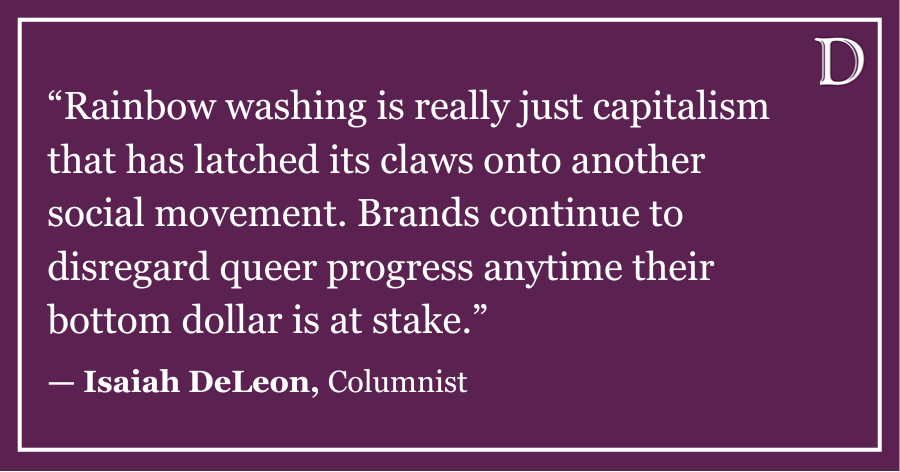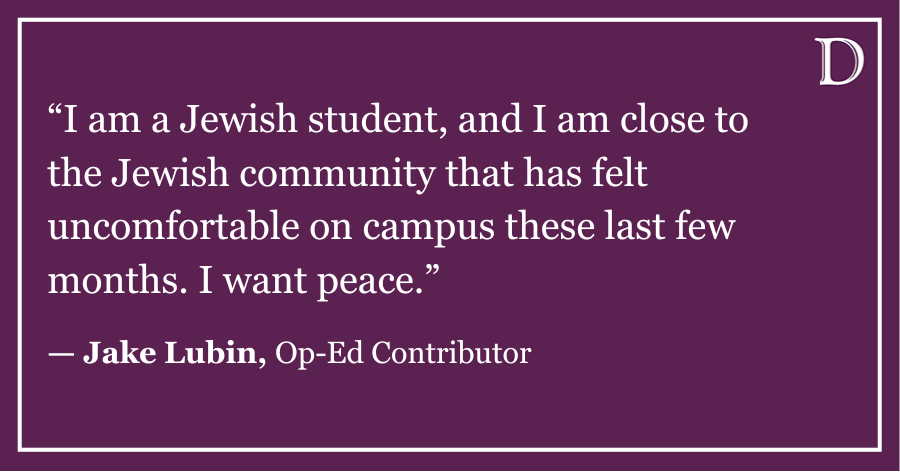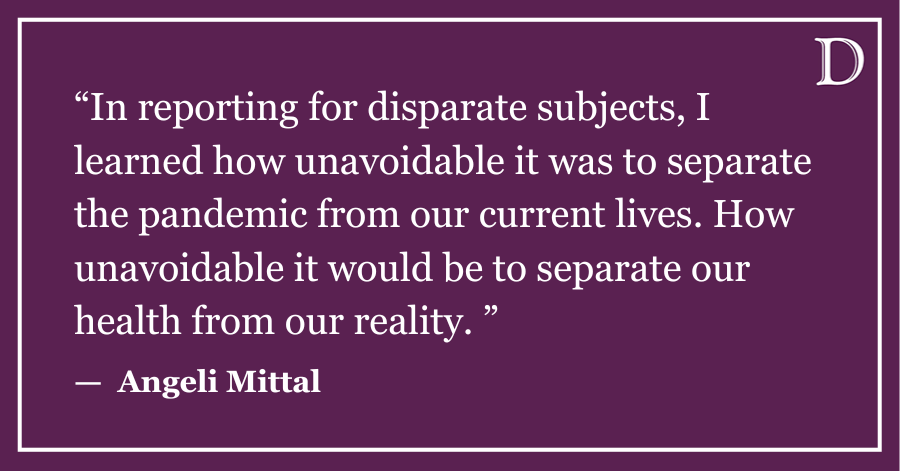When school breaks roll around, I’m always excited to go home. I’m excited to spend time with my family, to see my dogs, to see the familiar street names, restaurants and hiking spots I grew up with. When I go home, I feel comfort.
But, time and time again, as I’ve scanned my boarding pass to get on the plane out of O’Hare, something funny has happened. I’m wearing my regular plane outfit — slightly tattered sweatpants, an old shirt and my “Seek Discomfort” hoodie — a flight attendant will look at me and say: “Seek Discomfort? Why would you want to do that?”
It’s a valid question.
To back up for a second, Seek Discomfort is the retail brand associated with the company and popular YouTube channel Yes Theory. I began watching their videos in high school, which range from adventures like exploring abandoned towns to asking strangers to take a trip across the world with them.
In addition to watching Yes Theory videos, I’ve collected basically an entire outfit out of Seek Discomfort apparel: sweatshirts, shirts, shorts, socks and hats. I don’t consider myself a huge fan of shopping, but for Seek Discomfort, I make an exception.
I wear the Seek Discomfort sweatshirt because it’s a reminder of the mindset I want to have. Yes Theory says “Seek Discomfort” not with the goal of making someone uncomfortable but with the goal of promoting growth — realizing that we become our best selves when we push ourselves to be courageous, to face our fears and realize they don’t define us.
Some of Yes Theory’s other signature phrases include “Love Over Fear” and “Walk Freely.” A central tenet of the Seek Discomfort mindset is to interact with strangers and revel in our shared humanity.
Yes Theory is bound together by a community of “Seekers,” the name for the channel’s devoted fanbase. Rather than just being fans, though, Seekers actively meet up around the world to better their lives and work together to Seek Discomfort. When I’ve walked around campus with my merch on, I’ve been stopped by strangers who wanted to tell me they liked my sweatshirt or even had a similar one.
As someone with many fears and anxieties, Seek Discomfort first appealed to me because I felt helpless. I saw an incredibly close-knit group of friends going on crazy adventures — from taking trips around the world to spending the night on a huge hammock over a cliff — and I wanted to be like them. If I could just get myself to do that, I thought, then my life would be better.
But, as I watched more videos, it was more the community that I saw unfold on screen than the adventures they went on that resonated with me. I realized I didn’t need to travel the world or take daily ice baths to seek discomfort. I could just work on opening myself up to people and on prioritizing relationships — like getting over my nerves about texting a friend to meet for lunch. I could seek discomfort inch by inch until it became a habit.
With that said, it also didn’t contradict the Seek Discomfort motto for me to be going home to spend time in my childhood room, with home-cooked meals and the comfort of my family. I was seeking comfort in my family, but to me, that is the entire point of Seek Discomfort: You can’t truly bond with people without seeking a little discomfort.
I’m worried that in this short piece, I almost did a disservice to emphasizing how much Yes Theory means to me. After all, it’s daunting to try to encapsulate their impact on my life with just this column, which is why I’ve put off writing about them for so long. But even in writing this, I’m seeking some kind of discomfort.
The motto Seek Discomfort is short, powerful and almost jarring, but within it is another message entirely. Whenever I wear my Seek Discomfort shirt — which I’m wearing as I write this — I own my flaws. I own that the improvements I have to make are not burdens but beautiful opportunities. I own my humanity and the fact that I can always become a better version of myself.
Ethan Lachman is a Medill junior. He can be contacted at [email protected]. If you would like to respond publicly to this op-ed, send a Letter to the Editor to [email protected]. The views expressed in this piece do not necessarily reflect the views of all staff members of The Daily Northwestern.

























